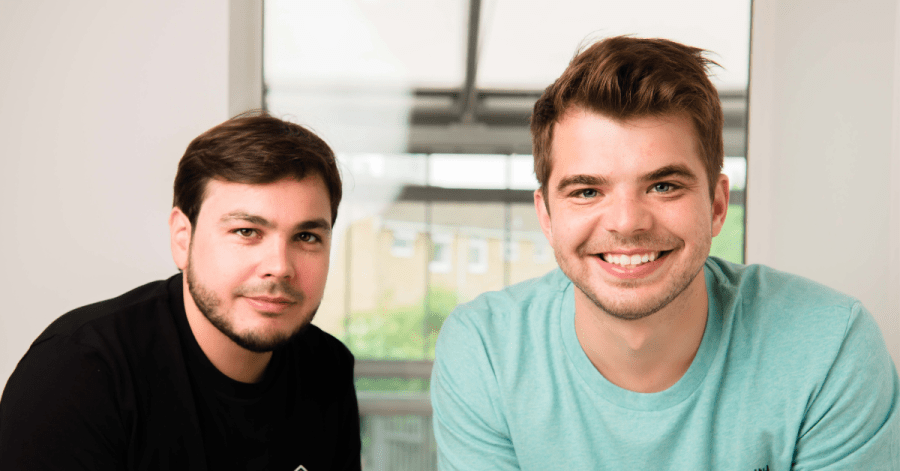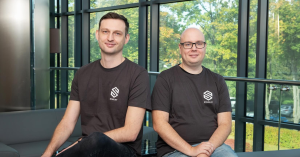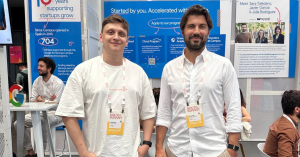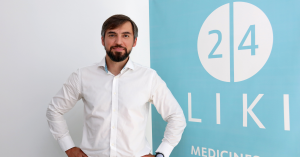• Proportunity, the Romanian-founded, UK-based mortgage lends that combines ML and finance to increase opportunities for home ownership, is raising €7 million Series A+ round, backed by VentureFriends, Kibo Ventures, and a number of angels and family offices.
• They further open the round to the public for co-investment in the UK and Romania. On Romanian co-investment platform Seedblink, the public round is now live.
• With the fresh capital, the team plans to bring to market new products, including a new 0% deposit, mortgage solution for home ownership, thus tapping into a new market.
In 2016, London-based Romanian founders Vadim Toader, an Oxford graduate and former consultant, and Stefan Boronea, previously at IBM and Booking, launched Proportunity to solve one of millennials’ biggest generational problems: access to homeownership. The timing couldn’t have been better. In the UK, traditional market players have not yet developed alternatives to traditional bank financing, while the government’s “Help to Buy” equity loan scheme – their main competitor in the market – is set to end in 2023.
So far, Proportunity received €130 million in debt financing in Q4 2021, kicking off the next phase of growth. So far, the company has achieved an over £1.5M annual recurring revenue and +200% year on year growth in new customers.
In this interview, Vadim Toader shares:
• Which trends are shaping the house market;
• Why they are topping up the Series A round and launching a co-investment campaign on Seedblink;
• All about their newest endeavor: getting a bank license to further improve access to home ownership.
The Recursive: What trends are currently shaping the house market and how is Proportunity riding these trends?
Vadim Toader, CEO and co-founder of Proportunity: I think over the last three years we’ve seen an exaggeration of the problems in the housing market. People have started to get bigger homes, as they are working from home more. The appetite for renting together with other people has also decreased. And this, unfortunately, has backfired, as these extra, bigger homes have pushed prices up, while salaries haven’t increased. In the UK, houses are now costing 10 times the annual income, up from eight to nine times income, however banks haven’t changed their lending approach. They still lend an amount five times the annual income. Due to that, there’s more need for products like ours in the market.
Then, for a while, in the UK, we saw a huge demand for houses but very limited supply. Not many people were selling their homes because of the price, and instead chose to invest in home improvements. But now some people are getting back to working from the office. And we’re seeing more homes on the market, even if there is still an imbalance of supply.
We’re also seeing lenders increasing their interest rates in response to inflation, which is putting more affordability pressure on what people can buy.
To summarize all of these trends, people want homes more than ever and, arguably, they want bigger homes, but the financial systems kind of work against that. They’re not really adapting to create solutions for these trends and, if anything, that actually increases interest rates. So, we’re seeing more and more need for companies like ours with problem-based solutions.
Who are you targeting with your solutions?
When we launched, we were more London-focused by choice, because this is where we’ve noticed the biggest problem. Since then, we’ve expanded at a national level. I think now we’re more balanced. There’s slightly more demand for our product than a few years ago in smaller regions in Europe, now that prices have increased. In terms of segments, a key audience are people in their 20s and 30s.
What has been the company’s traction so far?
We’re still at like less than 0.01% of demand. There are so many customers that want solutions like ours and we’re trying to reach all of these people. We’re talking about 8 million people who want to own a house but don’t have the means, and we’ve helped a few hundreds. Until the end of 2021, we helped people buy 60 million pounds worth of properties. Three months later, by the end of Q1 2022, we had helped 100 people buy 102 million pounds worth of homes. This is because we finally had the funding to help us meet demand.
Now we are at the stage where we’re trying to improve our product and go one step further.
You are now raising new funding. Can you tell us a bit more about it?
We are raising a €7 million Series A+ top up round, with a good portion of it coming from VentureFriends, Kibo Ventures, and a number of angels and family offices. In addition, we are opening the round on co-investment platforms such as Seedblink Romania for the Southeast European markets. Here, we want to share our success and give friends and families and people that know us a chance to kind of join us on the journey. Then we are also going on a crowdfunding platform in the UK to allow our customers to become our champions. A lot of the time, our customers end up referring us to their friends and this is like a token of appreciation.
We’re doing it as we want to launch a couple of new products and win market share at this crucial time where, in the UK, the biggest product that competes with us, which is the government’s home funding program, is ending in March 2023.
Tell us more about the new products you are launching.
We’re launching a mortgage with 0% deposit. Usually, when you buy a house, the bank gives you four and a half times your income, we give you 100K on top, and then you add the other 5%. This is the typical formula. What we’re doing now is that we are applying to get a license to be the main bank, with the goal to provide the whole loan. This will make a huge difference for customers because they won’t need to invest that 5% anymore.
We are also launching a rent-to-buy solution, whereby we buy your dream house and you can rent it from us until you are ready to buy. With our built-in savings and credit builder features, we want to help customers then become mortgage eligible in 5 years or less.
This is something we wanted to launch since 2018, however, it’s been a ride to bring the product to market. In our field, it’s very tough to innovate, because there are so many stakeholders who like regulations. It takes a long time to get everyone onboard and we had to prove to all debt providers that our investments are safe and our forecasting technology actually works and houses perform well.
Now that we have 250 homes, they can look at their performance, and see that they grew at a rate (6%) double than the average in London (3.2%). Then, people tend to only look at the average, but you also need to look at the distribution. We don’t have any homes with negative growth, even our lowest performing houses are still positive. This is important because our loans are equity loans, so if the house price grows, then our loan values more, and vice versa.
When you have 200 investments and you’ve done this over multiple years, then this brings a lot of confidence to debt providers. Now, they trust us to take on more risk because we have a track record.
How are you supporting the new product launch in terms of internal resources?
Our team grew fast – we were 12 at the beginning of last year, and now we are 32. We hired leadership positions. For instance, we hired Sarah Aird-Mash as VP of Marketing because it’s important for us to also capture the share of mind over the next year. Sarah is the ex-Head of Marketing at startup unicorn Currencycloud and a former marketing leader at Google and eBay. In the UK, for instance, people need to be aware that they have this alternative option to the government financing program, which has stopped. We need to position ourselves as the next go-to-place when you’re thinking about our first home. Then we have had Sreekumar Thaithara Balan and Matthew Froggatt as Head of Data Science and Head of Lending, respectively, for the past four years. I think it isn’t necessarily as much about hiring skills, as it is about hiring people with experience to lead out teams.
What are your plans regarding Southeast European markets?
One way would be to hire more people in the region, as we have quite a good experience with remote teams, especially on the tech side. And we would love to also launch a product and help one person in Europe in a different country than the UK by the end of 2023.
Which are key priorities on your agenda as a founder, when you are not working on the product?
One balance that I’ve been seeking is keeping the status quo performing well, while also innovating. That’s why we’ve been restructuring the teams in terms of leadership positions. Previously, we had a more departmental structure, while now we implemented OKRs slightly better. We realized we needed product leaders to not only respond to the CEO but actually pull in whatever departmental resources are necessary, and this just keeps everyone more focused.
Fundamentally, we’re all working towards a very clear goal. We want every decision we take to lead us to fulfill our vision to make homeownership the de facto choice for as many people as possible. And we are trying to do that for 1 million people by 2030. We’re optimizing everything for that purpose, including our newest product.








